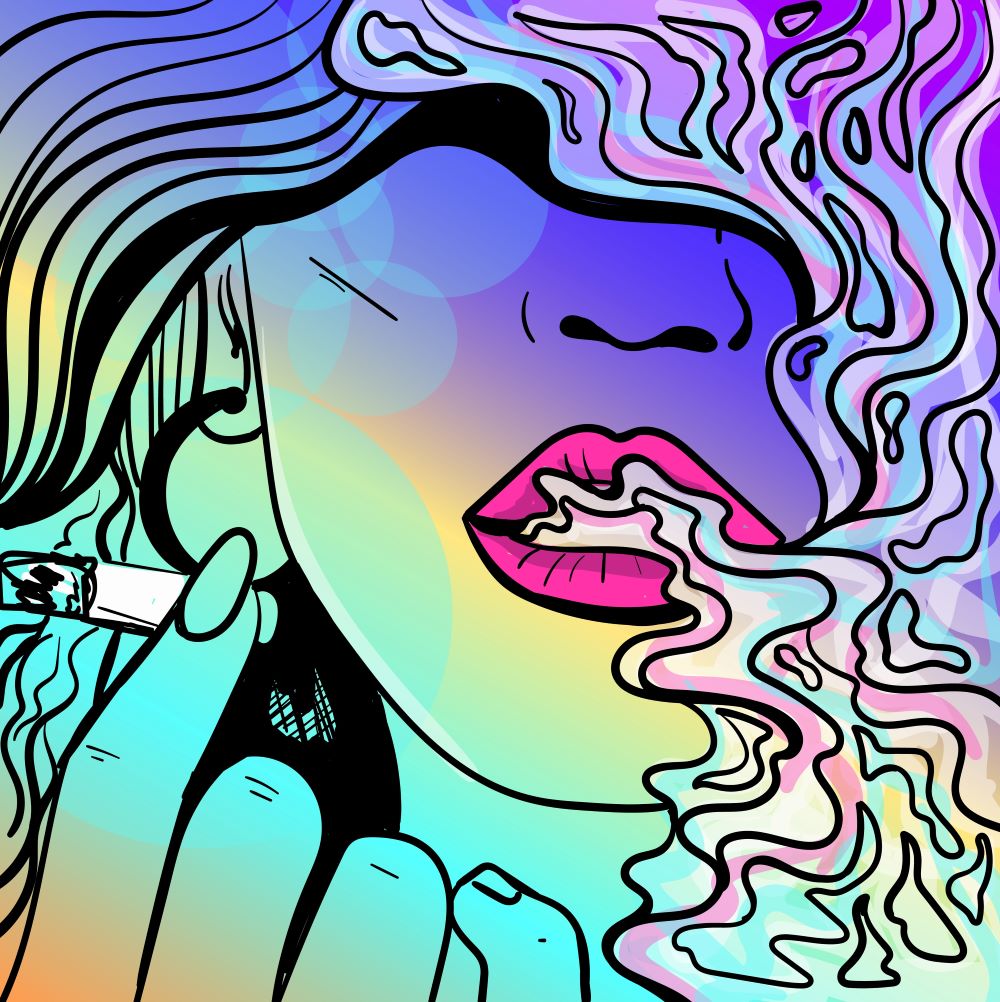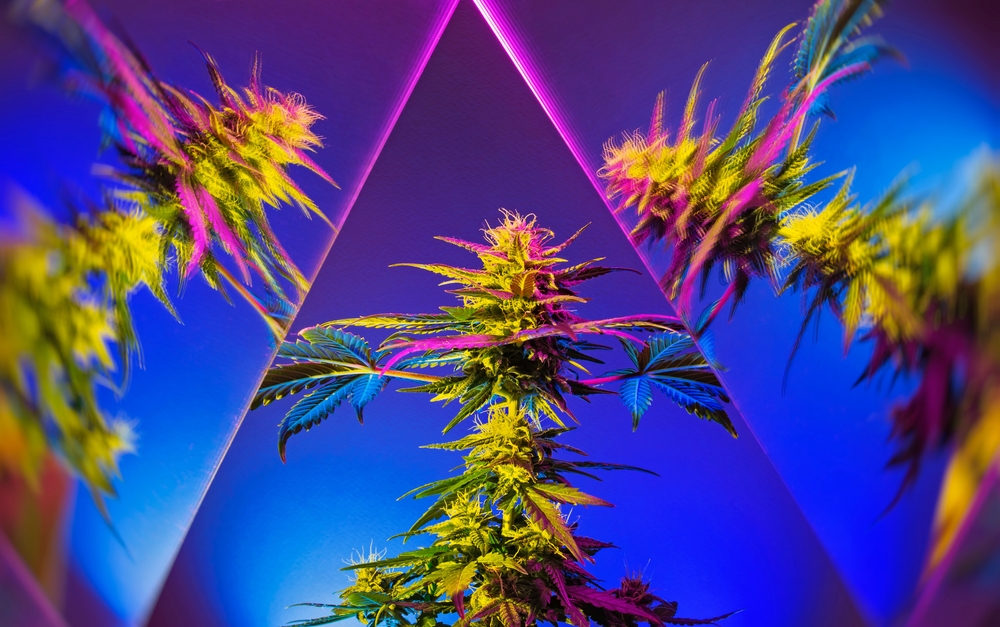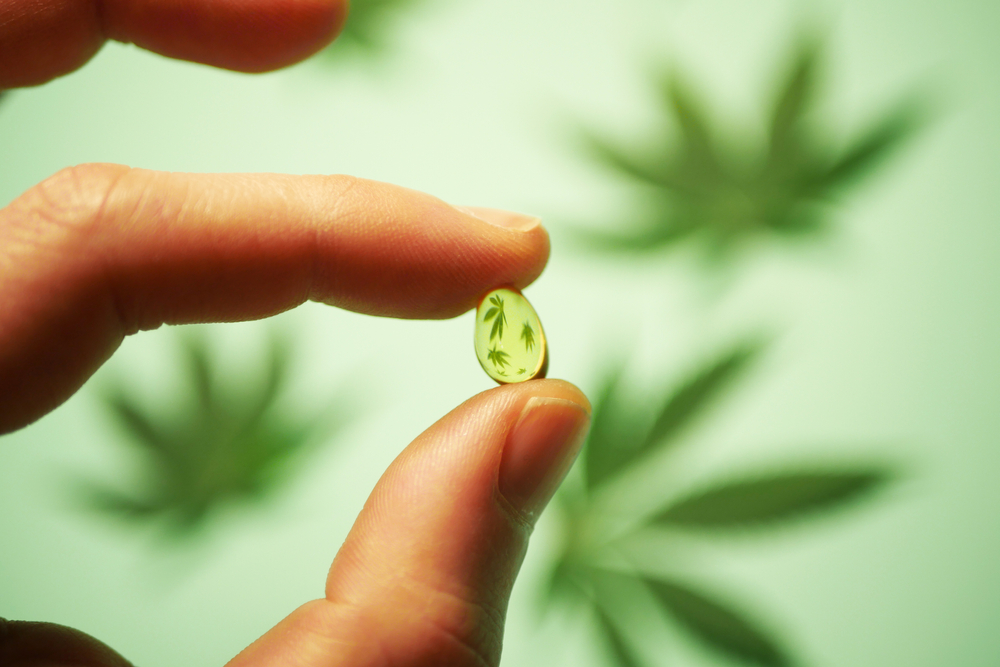Is Marijuana Psychedelic?
By MK Thomson
May 3 2023
It’s a common question that many new marijuana users are asking as they seek to understand the potential effects of the substance. So let’s explore this question in more detail and consider the differences between terms such as psychedelic, psychoactive, and psychotropic, and how they relate to marijuana.
Hopefully, we can help to demystify some of the terminologies and rumors swirling around marijuana and provide a clearer picture of what users can expect from this substance.

First of all, let’s clarify that we’re not just splitting hairs here. The words we use to describe drug effects are important because they can affect how we understand and treat different substances. For example, if we say that marijuana is psychedelic when it’s actually psychoactive, we might be overemphasizing the potential for hallucinations or spiritual experiences, while downplaying the more mundane effects like pain relief or appetite stimulation. On the other hand, if we say that marijuana is only psychoactive and not psychedelic, we might be missing out on some of the ways that people use it for creative or introspective purposes.
So what do these terms actually mean?

So where does marijuana fit in? Well, it turns out that it’s a bit of a tricky case. Some people do experience psychedelic effects from marijuana, especially when they consume high doses or potent strains. These effects can include vivid colors, distorted time perception, altered sense of self, and even mild visual or auditory hallucinations. However, most people would probably describe the effects of marijuana as primarily psychoactive, since they tend to feel more relaxed, happy, or sleepy after using it. In fact, some people use marijuana specifically to counteract the anxiety or paranoia that can sometimes accompany psychedelic trips.
On the subject of the therapeutic application of marijuana and magic mushrooms, you will likely hear the term “micro-dosing” more and more in the coming years. Microdosing has emerged as a potential way to treat a range of mental health conditions, such as anxiety, depression, and PTSD, without the negative side effects associated with higher doses of these substances.
But keep in mind: micro-dosing marijuana and magic mushrooms are quite different (to say the least) in terms of the risks and benefits involved. While micro-dosing marijuana can be done relatively safely on your own, micro-dosing magic mushrooms should only be done with someone who has experience and knowledge of the substance. This is because even small amounts of magic mushrooms can cause unexpected and intense effects, such as anxiety, paranoia, or even psychosis in some individuals.
On the other hand, micro-dosing marijuana can be a way to reap some of the potential benefits of the substance without experiencing the more intense psychoactive effects that can come with higher doses. It’s important to approach any drug use, including micro-dosing, with caution and informed consent.

While both marijuana and magic mushrooms can be consumed safely on their own, taking them together can increase the risk of negative side effects. While it’s not possible to overdose on either substance, taking too much of both can lead to intense hallucinations, paranoia, and other uncomfortable experiences. Additionally, combining marijuana and magic mushrooms can make it more difficult to control the intensity of the experience, which can be particularly concerning for those who are new to psychedelic substances.
It’s worth noting that while you can get “too high” with marijuana, there are simple things you can do to reduce the effects, such as drinking water, eating, or taking a nap. However, with magic mushrooms, there’s no quick fix for an intense trip, and you’ll simply have to wait it out until the effects wear off, which can take several hours. As with any substance, it’s important to consume responsibly and to always “start low and go slow” to minimize the risk of negative side effects.
So there you have it: the debate over whether marijuana is psychedelic is not just a matter of semantics, but reflects some of the complexities of how drugs affect the brain and behavior. Hopefully, this overview has helped shed some light on the topic, and given you some food for thought (or munchies, as the case may be).